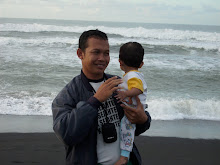[Signature]Reviewed by Pamela KaufmanPollan (The Botany of Desire) examines what he calls "our national eating disorder" (the Atkins craze, the precipitous rise in obesity) in this remarkably clearheaded book. It's a fascinating journey up and down the food chain, one that might change the way you read the label on a frozen dinner, dig into a steak or decide whether to buy organic eggs.
You'll certainly never look at a Chicken McNugget the same way again.Pollan approaches his mission not as an activist but as a naturalist: "The way we eat represents our most profound engagement with the natural world." All food, he points out, originates with plants, animals and fungi. "[E]ven the deathless Twinkie is constructed out of... well, precisely what I don't know offhand, but ultimately some sort of formerly living creature, i.e., a species. We haven't yet begun to synthesize our foods from petroleum, at least not directly."Pollan's narrative strategy is simple: he traces four meals back to their ur-species. He starts with a McDonald's lunch, which he and his family gobble up in their car. Surprise: the origin of this meal is a cornfield in Iowa. Corn feeds the steer that turns into the burgers, becomes the oil that cooks the fries and the syrup that sweetens the shakes and the sodas, and makes up 13 of the 38 ingredients (yikes) in the Chicken McNuggets.Indeed, one of the many eye-openers in the book is the prevalence of corn in the American diet; of the 45,000 items in a supermarket, more than a quarter contain corn. Pollan meditates on the freakishly protean nature of the corn plant and looks at how the food industry has exploited it, to the detriment of everyone from farmers to fat-and-getting-fatter Americans. Besides Stephen King, few other writers have made a corn field seem so sinister.Later, Pollan prepares a dinner with items from Whole Foods, investigating the flaws in the world of "big organic"; cooks a meal with ingredients from a small, utopian Virginia farm; and assembles a feast from things he's foraged and hunted.This may sound earnest, but Pollan isn't preachy: he's too thoughtful a writer, and too dogged a researcher, to let ideology take over. He's also funny and adventurous. He bounces around on an old International Harvester tractor, gets down on his belly to examine a pasture from a cow's-eye view, shoots a wild pig and otherwise throws himself into the making of his meals. I'm not convinced I'd want to go hunting with Pollan, but I'm sure I'd enjoy having dinner with him. Just as long as we could eat at a table, not in a Toyota. (Apr.)Pamela Kaufman is executive editor at Food & Wine magazine.
Copyright © Reed Business Information, a division of Reed Elsevier Inc. All rights reserved. --This text refers to the Hardcover edition.
click here to continue
In Defence of Food (Kindle Edition)
Food is the one thing that Americans hate to love and, as it turns out, love to hate.
What we want to eat has been ousted by the notion of what we should eat, and it's at this nexus of hunger and hang-up that Michael Pollan poses his most salient question: where is the food in our food? What follows in In Defense of Food is a series of wonderfully clear and thoughtful answers that help us omnivores navigate the nutritional minefield that's come to typify our food culture. Many processed foods vie for a spot in our grocery baskets, claiming to lower cholesterol, weight, glucose levels, you name it. Yet Pollan shows that these convenient "healthy" alternatives to whole foods are appallingly inconvenient: our health has a nation has only deteriorated since we started exiling carbs, fats--even fruits--from our daily meals. His razor-sharp analysis of the American diet (as well as its architects and its detractors) offers an inspiring glimpse of what it would be like if we could (a la Humpty Dumpty) put our food back together again and reconsider what it means to eat well. In a season filled with rallying cries to lose weight and be healthy, Pollan's call to action—"Eat food. Not too much. Mostly plants."--is a program I actually want to follow. --Anne Bartholomew
click here to continue
What we want to eat has been ousted by the notion of what we should eat, and it's at this nexus of hunger and hang-up that Michael Pollan poses his most salient question: where is the food in our food? What follows in In Defense of Food is a series of wonderfully clear and thoughtful answers that help us omnivores navigate the nutritional minefield that's come to typify our food culture. Many processed foods vie for a spot in our grocery baskets, claiming to lower cholesterol, weight, glucose levels, you name it. Yet Pollan shows that these convenient "healthy" alternatives to whole foods are appallingly inconvenient: our health has a nation has only deteriorated since we started exiling carbs, fats--even fruits--from our daily meals. His razor-sharp analysis of the American diet (as well as its architects and its detractors) offers an inspiring glimpse of what it would be like if we could (a la Humpty Dumpty) put our food back together again and reconsider what it means to eat well. In a season filled with rallying cries to lose weight and be healthy, Pollan's call to action—"Eat food. Not too much. Mostly plants."--is a program I actually want to follow. --Anne Bartholomew
click here to continue
Categories
medical residence
Subscribe to:
Posts (Atom)








